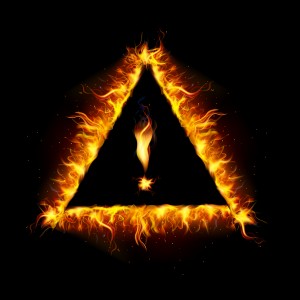Teaching Kids about Fire Safety
Arguably the greatest human achievement was the discovery of fire. Fire is what allowed humanity to settle in one place. It allowed us to protect ourselves against the environment around us. It allowed us to cook our food to increase the efficiency of digestion. It was and in fact still is the greatest tool in the advancement of human civilization. It does however have a dark side. Untold death and destruction can be attributed to fire. This is why it is as important as ever to teach the most vulnerable of our species, our children, about fire safety. When you have a chimney in your home, you must make sure to have annual inspections and help educate your kids about the dangers of fire.
The US Fire Administration (a division of FEMA) states that children ages 0-14 make up nearly 15% of all fire-related deaths and over 50% of those deaths are children under the age of 5. In many cases it is because they cannot escape a fire independently however in some cases it is simply because a smaller body succumbs to the dangers caused by fire quicker than an adult. Luckily there are steps that can be taken to help ensure the safety of our children. First of all we should always teach our children about the responsibility inherent in being around fire. It’s hot, it spreads quickly, and it can kill. It can be a valuable tool but only if it is treated with the respect it deserves. FIRE IS NEVER A TOY.
Unfortunately teaching children about the nature of fire is not nearly enough to prevent tragedy. It is our responsibility as adults to ensure that fire-starting materials (lighters, matches, etc.) be kept out of access from our children. These items can be thought of similarly to how one might store a weapon. It is just as easy for a kid to start a fire with a match as it is for them to pick up an improperly stored gun and the results can be equally as deadly. Despite our best efforts to keep these items out of reach children are a curious bunch and given the opportunity will find a way to get to them anyways. This is why it is important to ALWAYS supervise children. It only takes 5 seconds to strike a match. In many cases children will start fires in areas where they think they will not be found (closets, under beds, etc.). This can be extremely dangerous as there are usually lots of flammable items in these areas and escape can be difficult. It is always important to be vigilant in checking for burned matches or any other signs that our children might be experimenting with starting fires. It is also good practice to teach children that they should immediately tell you if they find matches or lighters and reward them for doing so.
As much as we try to prevent unwanted fires from starting sometimes it is out of our control. It is for this reason that it is imperative that a plan exists for getting out of the house quickly and to make sure that our children are aware of and practiced at that plan. Make sure everyone knows how to get to all the exits in the house and that there is a meeting place for everyone to meet up outside of the house in the event that people get separated. Remember a plan is only as good as its implementation so it is always a good idea to practice an evacuation plan several times and refresh familiarity with it often. Additionally we should be teaching our children to stay low to avoid the smoke as well as the “Stop, Drop, and Roll” technique at an early age and making sure that they understand the importance of doing so. Of course none of this will matter if there’s no way to know if there is a fire. That is why we should always make sure that smoke detectors are placed in fire-prone locations such as kitchens and near fireplaces as well as near bedrooms and bathrooms to ensure that if the alarm goes off everyone in the house will know it. Always keep fresh batteries in all smoke detectors and make sure everyone in the house knows what the alarm sounds like when it goes off.

